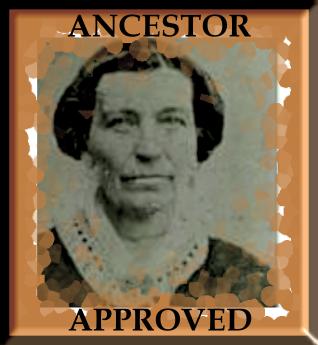An unlikely Daughter of the Confederacy.
The above sword belonged to my second great-grandfather, Col. W.R. Stuart. My fourth cousin found it not long before she found me on ancestry.com. At first, because of Stuart’s Colonel title, I thought it was a Civil War issued sword to help my great great-grandfather hold back advancing Union soldiers. Turns out that the sword was issued by the Knights of Pythias, a fraternal order not the Confederate Army. I’m not sure if the sword had anything to do with the Civil War, but I’m sure the colonel did. A census record shows him owning 59 slaves around 1850 and some receipts recently found by a genealogy buddy, Ghita Johnson, show he gave many thousands of dollars to the confederate cause. That’s many thousands of dollars more than I’ve ever given to any cause.
Great great-granddaddy was a Confederate for sure.
I have mixed feelings about the sword which is probably why it took me so long to post any pictures of it on this blog. What can I say? I’m never going to be happy that the Col. owned slaves, that one of them was my second great-grandmother, Temple Burton, that it’s a lot easier to find out information about him, a slave owner than about her, the slave he owned. But I am glad that he left a lot of history behind him. His history has the potential to shed some light on Temple’s. All of it, from the Colonel’s deep religious ties to the Methodist Church to Temple’s decision to live with her former masters decades after she was emancipated helps me expand my view of them and ultimately of myself. Like Malcolm Gladwell said on the final episode of PBS’s Faces of America, “the more ways you can define yourself, the better off you are.”
I’ll never identify as a daughter of the confederacy because of what the concept conjures up for me, but, a Daughter of the Confederacy, however uncomfortable it makes me, is literally one of the things that I am.
My fourth cousin, Monique will supply a guest post to tell you how she found this 19th century sword once she’s had a chance to catch the first episode of Who Do You Think You Are.
Meanwhile, has your ancestry research changed or expanded how you see yourself?







I was informed by a boss many years ago, who was trying to make sense of the fact that I am a Jew with blonde hair, that one of my relatives was most likely raped by a Cossack in the Russian shtetl from which much of my gene pool hails. And then the client walked into the conference room and we began our presentation of the ad campaign we had developed for a moisturizing beauty bar. Needless to say, I was a tad unsettled.
Excellent post. Thank you for writing it and sharing it. It is so important for the story to be written and to be read, along with the photos. Would this all be happening if we didn’t have these fine examples on TV to remind each of us how important our genealogy work really is?!
😉
I really enjoyed reading this post, and felt an immediate connection. I can completely relate, as I am (I guess) a “Daughter of the American Revolution”. Interestingly enough, although I’ve pondered the reality of this from time to time, this is the first time I’ve ever put it in print. The person whom I’ve discovered to be my gg-grandfather was actually a slave-trader. He fathered six children with my gg-grandmother, a mulatto woman. His (my) ancestors fought in the Revolutionary War. I share, and understand completely, your mixed feelings, but like you said, this is (a part of) who we are.
Renate
Renate,
Thank you for adding this comment. I read so much about the Revolutionary War period. I see these “relationship” frequently, a wonder what are the results. It is nice to know the “results” have been excellent; just sad (understated) that those were the conditions.
Bill 😉